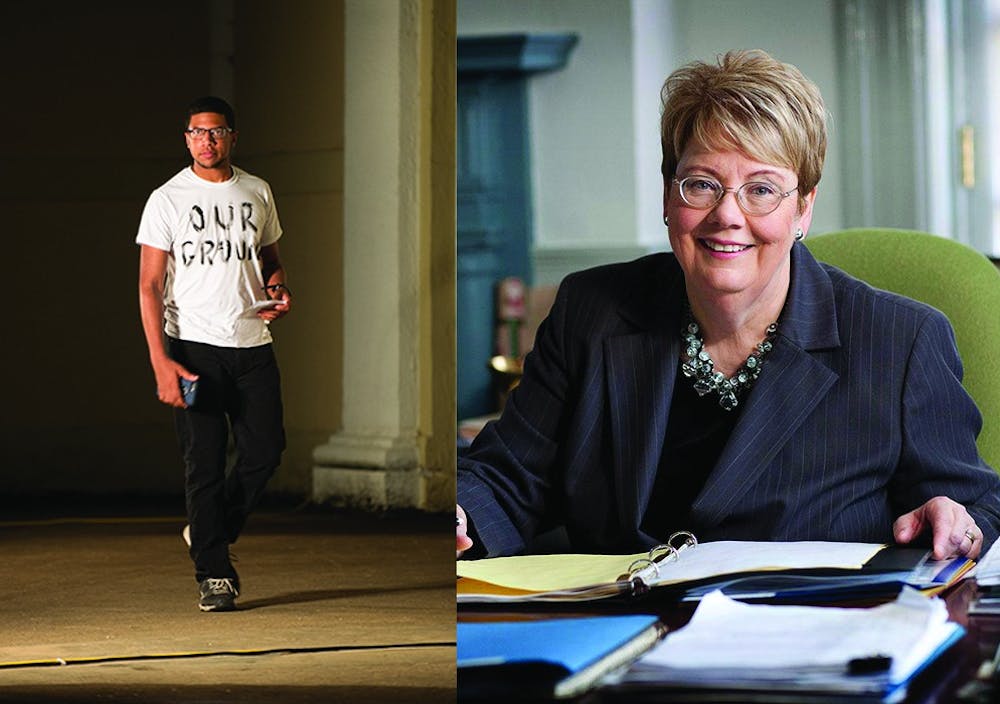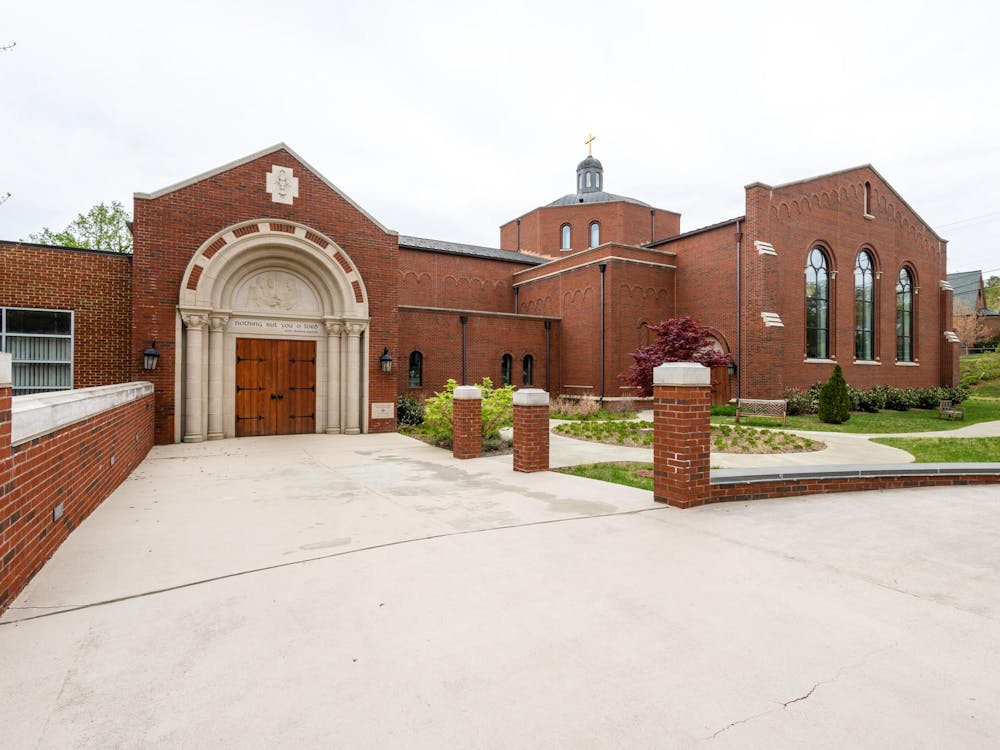Wes Gobar, a fourth-year College student and president of the Black Student Alliance, spoke alongside University President Teresa Sullivan, representatives from other colleges and legal officials before members of Congress last Friday.
The forum was led by Congressman Bobby Scott (D-Va.), ranking member of the House Committee on Education and the Workforce Committee. The meeting came after the BSA issued a list of demands following the events of Aug. 11 and 12, garnering endorsements from various organizations on Grounds.
Gobar was one of three students at the event. Taylor Dumpson, who also spoke, is a senior at American University and serves at the first black female president of the student government.
Dumpson described fighting for respect in the position after she became the target of multiple hate crimes on campus. She said public institutions need to do more to uphold Title VI, which “prohibits discrimination on the basis of race, color, and national origin” at programs receiving federal financial assistance, such as public institutions.
Payton Head, a University of Missouri alumnus and former president of the school’s students’ association, spoke as well. Head led the first student protest at Mizzou during the 2015-16 academic year, after his own Facebook post went viral. Head said he was called the N-word by a fellow student and the simple act of voicing this personal attack encouraged others to share their own experience with racism on campus. Subsequent protests and a student’s hunger strike eventually led to the resignation of the school’s president.
“We have to become comfortable with being uncomfortable, which means having conversations of our shortcomings as a nation, in the past,” Head said. “If our educational institutions continue to pretend that there is no problem, we won’t have the opportunity to create the solutions.”
Gobar shared similar sentiments in his remarks. He called for change on both a large-scale, University and smaller, individual level.
“We generally tend to think of racism and white supremacy in terms of only the most blatant and hateful individuals and forms of discrimination,” Gobar said. “It is important to condemn the most visible elements of white supremacy, but we must further address these subtle and systemic forms.”
He enumerated several incidents that occurred at the University in the 2016-17 academic year, including incidents in which the N-word and other derogatory slurs were written on buildings. Gobar also referenced a Student Council meeting last month where one speaker said in response to a comment about Thomas Jefferson raping black women, “That’s absolutely awful. But, so did everyone at that time.”
“Many incoming students of color now feel scared and unwelcome after the events of August 12th, but to tell the truth this is a nearly constant feeling on Grounds,” Gobar said. “There are pervasive incidents of harassment like these every year, and they are by no means isolated.”
Gobar referenced the BSA’s list of demands in his remarks, calling for the renaming of buildings named after well-known white supremacists and eugenicists, as well as re-designing curricula to address the University’s history more accurately.
“Students can go four years without learning and fully comprehending that brick by brick, our school was built by people who worked out of fear of either the lash or the sale,” Gobar said. “What it truly meant that Thomas Jefferson, the school’s founder, raped his 14-year-old slave?”
In her remarks, Sullivan mentioned some areas of success in recognizing the history of the University, including the continued work of the President’s Commission on Slavery and the University.
Sullivan spoke proudly of the commission’s success, but noted she and other University administrators still have much work ahead. Her statements at the forum directly related to the events of Aug. 11 and 12, as the University’s role as a public institution was questioned in terms of free speech and student protection.
“All of us are committed to building diversity and inclusion on our campuses. At the same time, we are committed to the principles of free speech, open discourse and the clash of ideas,” Sullivan said. “Striking the proper balance between these two commitments is one of the most challenging issues we face in higher education today.”
Her goals for the future of public institutions echoed some of the BSA’s demands, including striving to hire a more diverse faculty and editing curricula to offer a more accurate and broader view of issues.
"It was a serious discussion of the extent to which freedom of speech and assembly are being used to undercut inclusion all across the country with deliberate efforts to be insulting, threatening, or intimidating,” said Sullivan in an email statement to The Cavalier Daily following the forum. “The other witnesses brought thoughtful comments, and the members of Congress were clearly interested in what legislative action might be helpful.”
In an interview with The Cavalier Daily, Gobar said he was pleased to share his and other students’ concerns before Sullivan and responded to her remarks.
“I think the research with [the President’s Commission on Slavery and University] is very important,” Gobar said. “[But] I think students don’t interact with the research that PCSU does on a regular basis … there’s a lot more that needs to be done to get this information and research directly to the students and making sure that they’re digesting that.”
Gobar said he was glad to have the opportunity to speak and share the BSA’s demands before Congressmen, each of whom received a copy of the list.
Gobar and other members of the BSA will present the list before the Board of Visitors Sept. 15.







